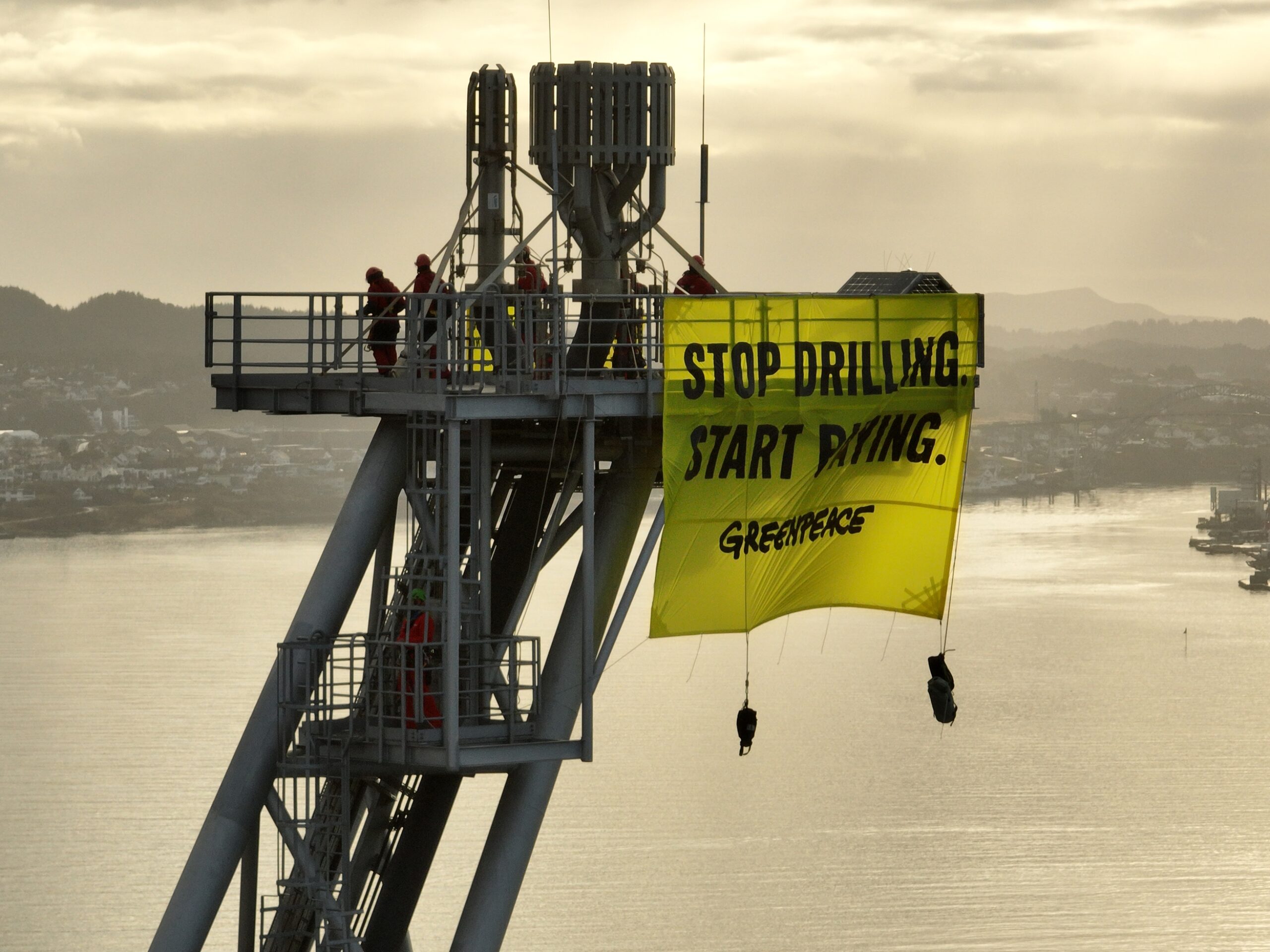
- Press Release
After 13 days and nearly 4,000km, Greenpeace occupation of Shell oil platform ends with no arrests
Haugesund, Norway, Sunday February 12. Six Greenpeace International activists, including one from the UK, have today [SUN 12] disembarked a Shell oil platform at the port of Haugesund, southwest Norway, after a 13-day occupation and nearly 4,000km, with police making no arrests.
Dramatic shots of the final standoff are available here.
In a final stand at 10.30am [CET], protestors climbed the platform’s 125m flare boom, and waved a banner saying ‘Stop drilling. Start Paying.’ Among the climbers was Imogen Michel, a Greenpeace activist from Ayrshire, Scotland, who spent over 290 hours aboard the vessel.
Meanwhile, five fellow activists led by Greenpeace Southeast Asia executive director, Yeb Saño, on board Greenpeace Nordic’s eight-metre Tanker Tracker boat sailed out to confront the 51-000-tonne White Marlin vessel contracted by Shell as it approached the port.
Earlier this afternoon, the platform was brought in to dock, and protestors were able to descend the boom and disembark, having traveled nearly 4,000km from where they first boarded, north of the Canary Islands [1]. It is Greenpeace’s longest-ever occupation of a moving oil platform.
The protestors have been calling on Shell to take responsibility for its role in causing the climate crisis, and to pay into loss and damage funds, to help countries recover from extreme weather caused by climate change. Two days into their protest, Shell posted record annual profits of nearly $40bn [2].
Speaking from the Tanker Tracker sailboat Mr Saño, who has previously acted as lead negotiator for the Philippines at global climate talks, said: “Shell might think this is the end of our protest, but my message to chief executive Wael Sawan is that this is just the beginning. Negotiations around climate loss and damage have so far stalled when it comes to the fundamental question of who will pay? Thanks to my brave fellow activists we are seeing people connecting the dots between fossil fuel mega profits and the bill for climate loss and damage. Not only can the likes of Shell afford to pay; it is right that they must pay for the devastation that they are directly causing. Shell, and the wider fossil fuel industry, must stop drilling, and start paying. One way or another we will make polluters pay.”
